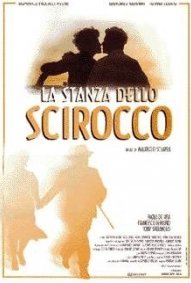Plot
An elderly marquis, persecuted by fascism, returns to his homeland to be able to sell a property. On his arrival in the fire of his building his butler dies. In order not to suffer the persecutions, the Marquis of Acquafurata decides to take his place in order to carry out his plan undisturbed. The Fascist Party would like to appropriate the building. But instead the Marquis, thanks to the notary Spatafora, finds a false will in which the palace is given to the poorest couple in the country.
Two young spouses, Vincenzo Labate and his wife Rosalia, take possession of the building. The beauty and reluctance of the young woman make the elderly Marquis fall in love, who after her husband's departure confesses his love to Rosalia. The house has a sirocco room in the basement, over which a legend hovers. Built by Arab architects, it is said that by shouting three times inside, the whole building will collapse, leaving no escape for the enemies. The crazy love between the two is consumed in the room, until her parents, who have smelled their daughter's feelings for the Marquis, force her to leave the palace to return to their home. The Marquis chases her, tells her that he will wait for her in the sirocco room, and from there he will take her with him to Paris, after having mocked her fascist pursuers. But the wait is in vain. The Marquis, in a delirium, seems to hear the voice of the young woman, his love screams at her three times, and the palace collapses on him. Disillusioned by now, the man goes to escape, a motorboat awaits him at the sea that will take him to safety. But right there he will find Rosalia, and together they will flee to freedom.
This page is based on this
Wikipedia article Text is available under the
CC BY-SA 4.0 license; additional terms may apply.
Images, videos and audio are available under their respective licenses.
